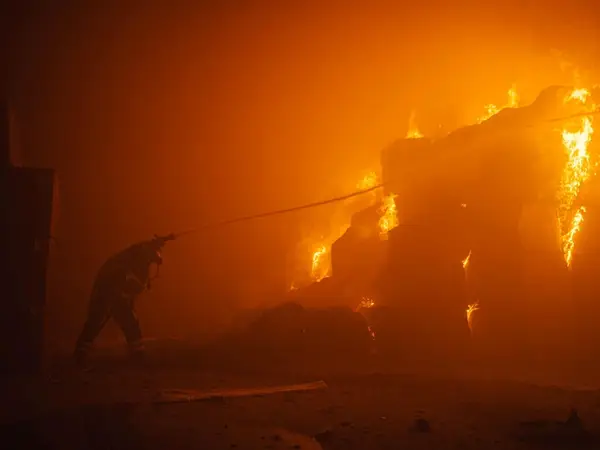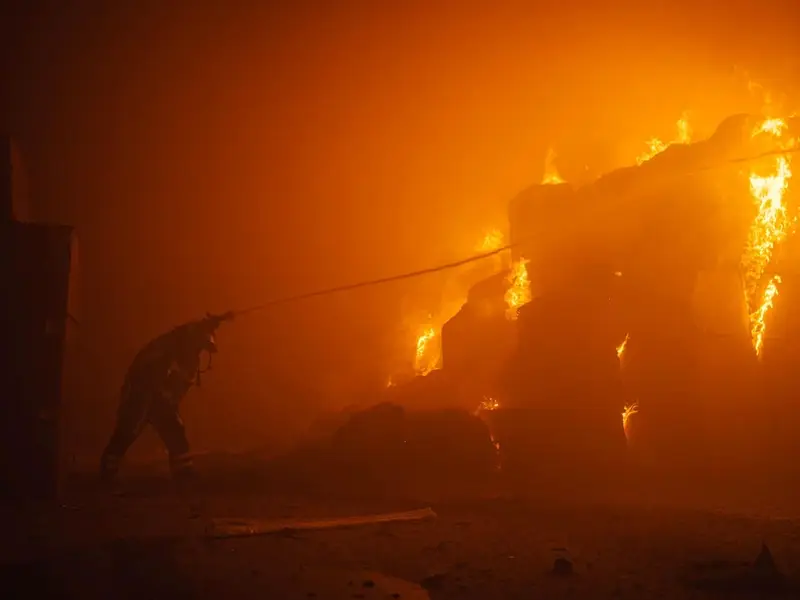Russia launched its most extensive kamikaze drone attack against Ukraine's capital, Kyiv, on Saturday using dozens of Iranian Shahed Unmanned Aerial Vehicles.
The attack injured five people, disturbing the early morning tranquility with the sounds of air defenses and explosions.
The assault began in the early hours, targeting various districts of Kyiv and persisting in waves as daylight emerged, with the air raid alarm lasting for a prolonged six hours.
Iran has supplied hundreds of kamikaze drones to Russia since mid-2022. The drones have been extensively utilized to target civilian infrastructure and cities, integrated into large-scale missile attacks to overwhelm Ukrainian air defenses.
Despite Iran's denial of involvement in supplying drones and other weaponry to Russia, the United States and NATO allies have imposed sanctions on individuals and entities associated with these drone shipments.
Initially, Ukraine's air force reported successfully intercepting 71 out of 75 drones, later revising the number to 74. A spokesperson clarified that 66 of the drones were brought down over Kyiv and its surroundings. Air force chief Mykola Oleschuk credited the effectiveness of 'mobile fire' units—fast pickup trucks equipped with machine guns or flak cannons—for downing nearly 40% of the drones.
Kyiv Mayor Vitali Klitschko, communicating via the Telegram app, confirmed five injuries, including an 11-year-old girl, and widespread building damage across various city districts. A fire in a children's nursery was sparked by a fragment from a downed drone.
President Volodymyr Zelenskiy condemned the attack as "willful terror," accusing the Russian leadership of taking pride in causing harm.
While the exact target of Saturday's attack remains unclear, Ukraine had previously warned of a potential Russian aerial campaign targeting Ukraine's energy system, similar to attempts last winter.

